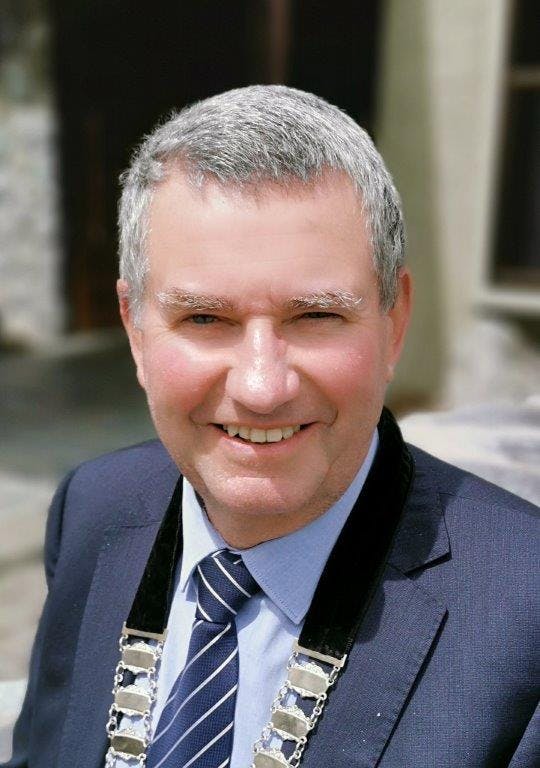Proposed Government Three Waters Reform
Consultation has concluded
Do you have any questions about the governments Water Reform Programme? Use the Questions tool at the bottom of the page and we'll get back to you with an answer.
In July 2020, the Government launched the Three Waters Reform programme – a three-year programme to reform local government three waters service delivery arrangements.
The programme is a major change to how New Zealand’s three waters (our drinking water, wastewater and stormwater) infrastructure and services are planned, maintained and delivered. The reforms are based around three pillars:
- Taumata Arowai – New Zealand’s drinking water regulator (expected to be established in late 2021).
- Expanding and strengthening New Zealand’s water regulatory system.
- Proposed transition from council-owned public water services to four multi-regional entities.
The process, which began in 2017 and was sparked by the campylobacteriosis outbreak in Havelock North in 2016, and has already delivered new legislation and the creation of Taumata Arowai, a new Water Services Regulator, to oversee and enforce a new drinking water regulatory framework, with additional oversight of wastewater and stormwater networks.
While addressing the regulatory issues, both central and local government have identified under-investment in three waters infrastructure in parts of the country and persistent affordability issues for ratepayers. There is also a need for increased investment to meet improvements in freshwater standards and increase resilience to climate change and natural hazards. The government believes that this will offer cost savings to water users, while allowing for increased investment in the infrastructure required to ensure safe, resilient and sustainable water into the future.
Regional Water Authorities
The proposal from central government is to establish four water authorities, who would manage and operate New Zealand’s water services instead of local councils.
Currently the 67 local councils across the country own and operate the majority of New Zealand’s three waters services. In the Mackenzie District, these services are the responsibility of Mackenzie District Council (MDC) and are one of the core services we provide for our community.
One entity (currently named Entity D) is proposed to cover the Ngāi Tahu takiwa (all of the South Island excluding Nelson, Marlborough and Tasman). The Mackenzie District would fall under the proposed boundaries of Entity D.
The Department of Internal Affairs (DIA) has released a map (below) showing the proposed boundaries of the three entities. We would be included in entity D and our Council is in the process of giving the Government feedback on the map. It's important to note that we haven't firmed up a position on the overall proposal and boundaries yet.
You can find this map and more information here.
 Proposed Regional Water Entities
Proposed Regional Water EntitiesWater standards
Regardless of what happens with the proposed multi-regional entities, compliance with water standards is going to be more rigorously enforced by the new government water regulator, Taumata Arowai.
Under Taumata Arowai, drinking water standards must be complied with, and there will be potential criminal implications for water operators who don’t meet the standards required. This will apply to council owned water supplies as well as smaller private schemes, including rural water networks
The standards for wastewater and stormwater are also expected to increase to meet public health and environmental bottom lines.
Regardless of who runs the three waters networks in Mackenzie, public and private water services will have to meet public health and environmental legislation. The costs of compliance and being able to demonstrate compliance is going to go up and will need to be paid for by users.
Government Package
At the Local Government NZ (LGNZ) Conference in mid-July the Government announced a $2.5 billion package for councils as part of its three waters reform.
The package has three financial components:
- Support for local government to invest in communities’ wellbeing. This part of the investment totals $2 billion, with $500 million being available from 1 July 2022. It will be allocated between councils according to a nationally consistent formula, reflecting population (75 per cent), deprivation (20 per cent) and land area (5 per cent).
- Targeted support to ensure no councils are financially worse off as a result of transferring their three waters assets. This is designed to protect councils from any negative financial consequences of the asset transfer.
- Cover of reasonable transition costs. This is intended to make sure council service delivery (including of water services) during the transition isn’t compromised by the work needed to make the transition happen.
What does this mean for MDC?
We fully support the government’s intention to ensure that all New Zealanders have access to safe, clean water and that our environment is protected and regenerated as a priority. But it’s also vital we have a clear understanding of whether the proposed approach is the right thing for our district.
The move to large water entities could potentially significantly change the way water infrastructure and services are delivered in our District and how MDC is funded, as three waters would no longer fall under MDC’s authority.
It is unclear whether Government will give councils the choice to opt in or out of the proposed water entities, or if it will mandate that all councils opt into the reform process.
Regardless of who runs the three waters network in Mackenzie, any water scheme will have to meet drinking water safety and environmental requirements. The costs of compliance and being able to demonstrate compliance are going to go up and need to be paid for users. This applies to Council provided networks and private water schemes.
As this involves a significant community owned asset (our entire water network), if we are given the opportunity to make a decision, we will be sure to consult with our community.
To read a summary Q&A document click here
Our bottom lines
We have provided the government with a range of bottom lines that we believe any reform must meet. These include:
- Local representation: any water entity developed through the process must enable local representation and MDC must not lose its ability to promote its community’s needs and wishes.
- There must be adequate controls on water pricing structures and pricing must ensure equity across the entire region of any future entity.
- The transfer of assets and debt must not negatively impact on MDC’s ability to be a viable organisation.
- Cost and management of any stranded assets must be considered.
- That full compliance with drinking water standards, environmental consents and cultural values are non-negotiable and should be progressed with urgency no matter which organisational arrangement is adopted, including the status quo.
Questions MDC is looking to have answered
We have a number of issues that we are seeking clarity on so we can make an informed decision around water reform.
Mayor Graham Smith has sent a letter to the Department of Internal Affairs (DIA) and Local Government New Zealand (LGNZ) outlining MDC's bottom lines and a list of questions we need answered to ensure we can form an educated view on water reform. This letter can be viewed at the link below.
Mayoral Letter to DIA - MDC Questions for DIA on Water reform
Appendix 1: MDC Review of WICS data
What are the potential costs?
DIA have undertaken modelling that looks to understand the cost to households with or without reform. This was based in a Request For Information that every Council in New Zealand had to complete, detailing their water network. The information was then modelled at a national level and the estimate costs outlined for each Council, which is available on an online dashboard.
The Government modelling estimates that by 2051 the provision of three waters in Mackenzie will cost upward of $8,690 per household without reform, or $1,640 with reform. Mackenzie District is working to understand the modelling undertaken and the assumptions used to ensure are an accurate representation of the true potential impacts on our community.
 DIA three waters dashboard
DIA three waters dashboard
What are the next steps?
Government has given all councils until 1 October, to better understand the proposal and how it affects them and their communities. This period is also an opportunity to identify issues of local concern and suggest possible ways to address those.
After the eight-week period, the Government will consider next steps, including the process and revised timing for decision-making. No decisions on this have been made, or will be made, until after this engagement period.
Useful Links
We’ve pulled together some useful links for anyone keen to delve into the detail of what is being proposed:
Local Government New Zealand's 'Three Waters 101 Infographic'
Local Government New Zealand's A3 Three Waters Reform Explained
So, what do other councils think?
You can find out what other councils around New Zealand think of this reform here.



